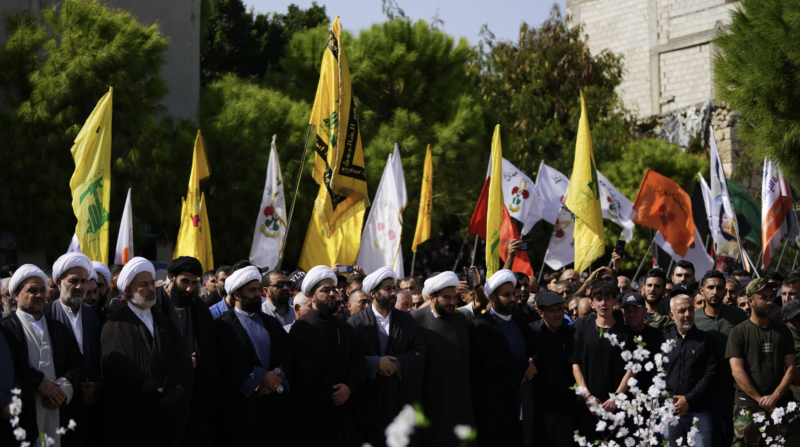
Tensions are escalating between Israel and Lebanon-based Hezbollah, as the Israeli military claimed that it could launch a large-scale attack in southern Lebanon to deter Hezbollah. IDF Chief of Staff Herzi Halevi suggested that the Israeli military was willing to undertake significant military operation against Hezbollah.
Hezbollah has continued to press forward with low-intensity attacks on Israel since October 2023 using drones and guided artillery, to protest Israel’s bombing of Gaza, but has stopped short of a full escalation. For its part, Israel has resorted to the use of white phosphorus, banned under international law, to target Lebanese villages.
Why does an escalation look likely?
Even though Hezbollah has been targeted Israeli military bases since October 2023, the attacks from each side have increased in intensity in recent days, and both Hezbollah and Israel are striking deeper into the other’s territory. Large swathes of land in northern Israel were set ablaze earlier this week after Hezbollah launched what it called “a swarm of drones” at Israeli military targets.
Nearly 60,000 Israelis have evacuated from northern towns and villages, after Hezbollah’s attacks have grown in both intensity and frequency.
Does Israel want to open up another front?
Naim Qassem, Hezbollah’s second-in-command, said “we have decided not to widen the battle and we do not want an all-out war. But if it is imposed on us, we are ready and we won’t retreat,” in a statement to Al Jazeera.
On June 5, Benjamin Netanyahu visited the northern border town of Kiryat Shmona, Israel’s northern most city established on the site of the Palestinian village al-Khalisa, and claimed that Israel was prepared for significant military action in the north.
The same day, Israeli Minister of National Security Itamar Ben-Gvir claimed that the IDF should be ready to destroy Hezbollah. In a statement on Telegram, he claimed “All Hezbollah strongholds must be burned and destroyed. War!”
However, Israeli Finance Minister Bezalel Smotrich, in an interview with radio station Reshet suggested that despite the public statements, the IDF is uninterested in opening up a front with Hezbollah to the north. He claimed that the “military is telling us right now that it doesn’t want to… launch an attack in the north, fight and defeat Hezbollah.”
Axios reported that the Biden administration had warned Israel against attacking Hezbollah, over fears that the conflict would draw in Iran and would not remain limited to a small regional war.
Strategic analysts suggest that Israel has found itself in a trap, with Hezbollah having enhanced their technical capabilities to attack northern Israeli towns using kamikaze drones that are capable of evading Israeli defenses. Writing for Haaretz, Amos Harel suggests that Israel is headed towards “a magnificent multi-dimensional failure” as it faces rapidly diminishing international legitimacy, without adequate support from the US and a military that is growing weary in the face of logistical challenges.
What is the historical background between Hezbollah and Israel?
Israel launched an invasion of Lebanon in 1982, which led to Israeli tanks rolling all the way to Beirut, the Lebanese capital. Hezbollah was formed as a resistance group to drive out Israel, which occupied southern Lebanon for 22 years. Hezbollah managed to drive out Israel in 2000.
Israel and Hezbollah went to war again in 2006, after Hezbollah kidnapped 2 Israeli soldiers. Thousands, mostly civilians, died in the ensuing conflict which ended in a tense stalemate.
Who is Hezbollah?
Hezbollah is a Shia group that emerged out of the 1982 invasion and occupation of Lebanon by Israeli forces. The group is backed by Iran and commands an impressive force of 100,000 fighters and nearly 150,000 rockets that are widely believed to have the potential to overwhelm Israeli air defenses if war were to break out.
